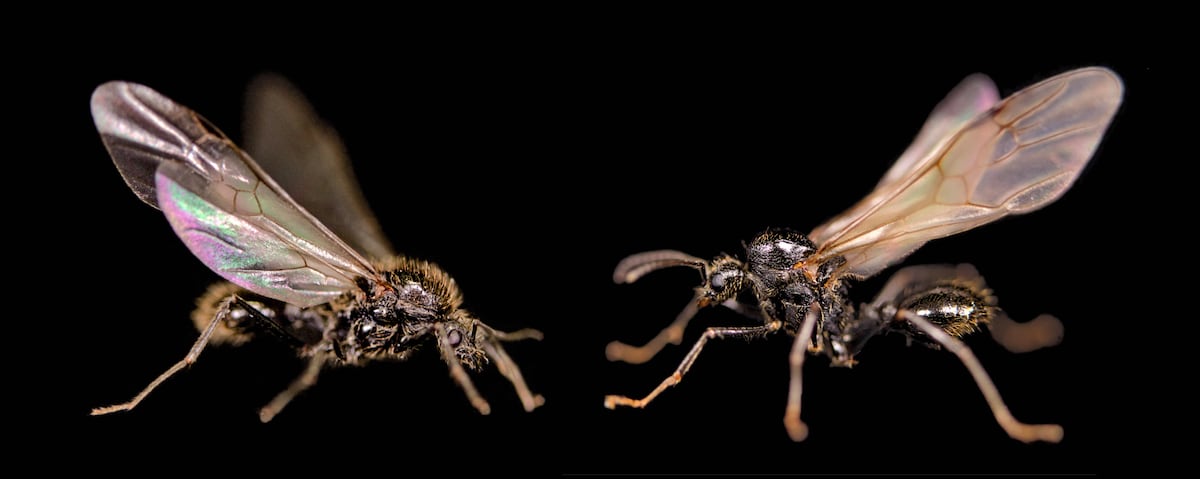
"With the first warm days of spring or summer, after the initial rains, frenzy breaks out among the ants. Virgin queens go in search of one of the many males of their species, who, in a synchronized manner, also leave their colonies. During this nuptial flight, they mate with as many males as they can, storing their sperm. It will be the only time in their lives that they do so."
"The Messor ibericus is, as its name suggests, native to the Iberian Peninsula. But its colonies are found across the entire southern belt of Mediterranean Europe, from southern Spain to Greece. It is a harvester of grasses, so it is easy to see it marching in single file across pastures, carrying a grain many times its weight. By analyzing the genes of several hundred ants of the genus Messor, a group of entomologists discovered that 164 of them were actually hybrids."
During synchronized nuptial flights virgin ant queens mate and store sperm that will produce queens, males, and workers for years. A Messor ibericus queen mates with males of another species and produces workers sired by Messor structor males. Messor ibericus colonies span southern Mediterranean Europe and specialize in harvesting grass seeds. Genetic analysis of several hundred Messor ants identified 164 hybrid individuals that carried M. ibericus mitochondrial DNA but M. structor nuclear DNA. Queens mating with males of other species occurs in ants and is termed sperm parasitism, a phenomenon that complicates conventional species boundaries.
Read at english.elpais.com
Unable to calculate read time
Collection
[
|
...
]